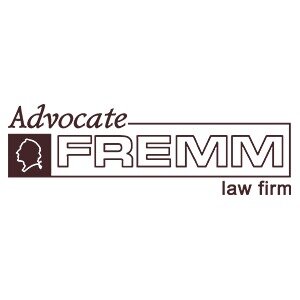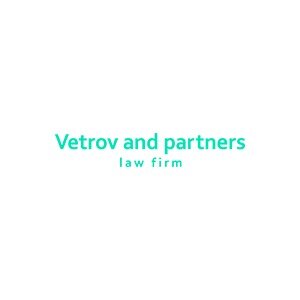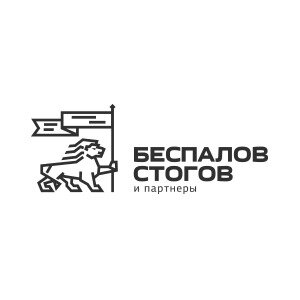Best Renewable & Alternative Energy Lawyers in Russia
Share your needs with us, get contacted by law firms.
Free. Takes 2 min.
Or refine your search by selecting a city:
List of the best lawyers in Russia
About Renewable & Alternative Energy Law in Russia
Renewable and alternative energy are playing an increasingly important role in Russia’s efforts to diversify its energy portfolio and address environmental concerns. While Russia is historically known as a leading producer of oil and natural gas, the country has significant resources for renewable energy, including hydropower, wind, solar, and biomass. The government has committed to an energy strategy that calls for the increased use of renewables as part of its broader climate commitments.
Renewable and alternative energy law in Russia covers the regulation, implementation, and promotion of energy sources such as wind, solar, hydro, geothermal, and biomass. This legal framework governs everything from licensing and permits for development projects to tariffs, incentives, and environmental compliance. The aim is to ensure that energy generation and consumption transition toward cleaner and more sustainable sources while balancing the economic interests of Russia’s powerful traditional energy sectors.
Why You May Need a Lawyer
Engaging in the renewable and alternative energy sector in Russia can involve complex legal and regulatory challenges. Individuals, companies, and foreign investors may find legal representation helpful in the following common situations:
- Navigating approvals and permits for project development
- Understanding and complying with Russian federal and regional energy legislation
- Negotiating and drafting contracts with suppliers, landowners, and grid operators
- Securing government support, subsidies, or participating in incentives programs
- Managing disputes related to land use, environmental impact, or intellectual property
- Handling import-export issues for renewable energy equipment
- Advising on investment structure and tax implications for renewable energy projects
- Ensuring compliance with environmental and safety regulations
- Participating in public-private partnerships or tenders
- Managing risk assessment and insurance for renewable energy installations
Given the evolving nature of renewable energy law in Russia, having a knowledgeable legal professional can help you mitigate risks, access incentives, and streamline your project’s legal processes.
Local Laws Overview
The legal landscape for renewable and alternative energy in Russia is shaped by federal laws, government strategies, and regional regulations. Some of the most relevant aspects of local law include:
- Federal Law No. 35-FZ On the Electric Power Industry - Establishes the legal basis for electricity production, grid connection, and renewable power integration.
- Government Decree No. 449 - Governs the incentive mechanisms through the capacity supply agreement (CSA) system, supporting renewable generation projects.
- Renewable Energy Targets - Mandates a share of electricity generation from renewable sources, with goals outlined in the Energy Strategy of Russia up to 2035.
- Licensing and Permits - Project developers must secure various permits related to land use, construction, environmental assessment, and grid connection.
- Support Mechanisms - Incentives include guaranteed capacity payments, reduced grid access costs, and sometimes reduced property tax rates for renewable energy producers.
- Regional Programs - Some regions have their own support programs and streamlined permitting processes for alternative energy projects.
- Foreign Investment Regulations - There may be additional considerations for foreign investors, including ownership restrictions and reporting requirements.
- Environmental Legislation - All projects must comply with laws on environmental protection, including environmental impact assessments and reporting.
Keeping up-to-date with these laws is crucial, as Russia continues to update its energy regulations in line with changing economic priorities and international climate obligations.
Frequently Asked Questions
What types of renewable energy are most common in Russia?
The most widely used renewables in Russia are hydropower, followed by wind, solar, and biomass. Hydropower already accounts for a significant share of the country’s electricity, while solar and wind are rapidly developing in certain regions.
Can foreign companies invest in Russian renewable energy projects?
Yes, foreign investment is permitted in most renewable energy sectors, but there may be restrictions or additional requirements, especially concerning strategically important infrastructure and land rights.
What permits are required to build a renewable energy project?
Developers typically need construction, environmental, and grid connection permits, along with land use approvals and compliance with safety standards.
Are there government incentives for renewable energy?
Yes, incentives are available under the Capacity Supply Agreement (CSA) system, offering guaranteed capacity payments and favorable terms for grid access. Additional regional benefits may apply.
How is electricity from renewables sold in Russia?
Electricity generated from renewables is usually sold into the wholesale market or through long-term contracts with distribution companies. Some projects are developed under government tenders with specific offtake conditions.
What are the key challenges for renewable energy projects in Russia?
Challenges include regulatory complexity, grid integration issues, bureaucratic delays, competition from fossil fuels, and in some cases limited local demand or infrastructure.
How are environmental concerns addressed?
All projects must comply with Russia’s federal environmental laws and undergo environmental impact assessments. Developers must also consider local and regional conservation regulations.
Is energy storage regulated for renewable energy projects?
As of now, the regulatory framework for energy storage is still developing. Legal advice is recommended if you are planning an integrated storage solution as part of your renewable project.
Can individuals or small businesses install solar panels or wind turbines?
Individuals and small businesses can install renewable energy systems, but must comply with local permitting and grid connection requirements, and any applicable building codes.
What legal risks are associated with renewable energy projects?
Potential risks include delays in permitting, changes in government policy, land disputes, contract enforcement challenges, and lack of clarity regarding incentives. A lawyer can assist in identifying and mitigating such risks.
Additional Resources
If you are seeking more information or support, the following resources and organizations may be helpful:
- Ministry of Energy of the Russian Federation - Oversees national energy policy and regulation
- Russian Association of Renewable Energy - Provides industry news and advocacy
- Federal Antimonopoly Service - Handles competition and procurement issues in the energy sector
- Regional energy authorities - Each major region may have its own energy department or advisory council
- Chamber of Commerce and Industry of the Russian Federation - Offers business advice and networking opportunities
- State Corporation “VEB.RF” - Acts as a development bank offering financial support to energy projects, including renewables
- Research institutes, such as the Russian Energy Agency, offer analysis and training programs related to renewable energy
Next Steps
If you are considering entering the renewable and alternative energy sector in Russia or facing a legal issue regarding your project, it is important to seek qualified legal assistance. Begin by clearly outlining your business goals or legal issue, gather any relevant documents, and list your questions or concerns. Research legal professionals or law firms with experience in Russian energy law, especially those familiar with the renewable energy sector.
When you contact a lawyer, be prepared to discuss the type of project, its location, your investment structure, and any specific legal challenges you are facing. A knowledgeable legal advisor can help you navigate the permit process, advise on incentives, draft contracts, and ensure compliance with all regulatory requirements. Taking these steps early will help your project run smoothly and minimize risks as the renewable energy landscape in Russia continues to evolve.
Lawzana helps you find the best lawyers and law firms in Russia through a curated and pre-screened list of qualified legal professionals. Our platform offers rankings and detailed profiles of attorneys and law firms, allowing you to compare based on practice areas, including Renewable & Alternative Energy, experience, and client feedback.
Each profile includes a description of the firm's areas of practice, client reviews, team members and partners, year of establishment, spoken languages, office locations, contact information, social media presence, and any published articles or resources. Most firms on our platform speak English and are experienced in both local and international legal matters.
Get a quote from top-rated law firms in Russia — quickly, securely, and without unnecessary hassle.
Disclaimer:
The information provided on this page is for general informational purposes only and does not constitute legal advice. While we strive to ensure the accuracy and relevance of the content, legal information may change over time, and interpretations of the law can vary. You should always consult with a qualified legal professional for advice specific to your situation.
We disclaim all liability for actions taken or not taken based on the content of this page. If you believe any information is incorrect or outdated, please contact us, and we will review and update it where appropriate.
Browse renewable & alternative energy law firms by city in Russia
Refine your search by selecting a city.

















